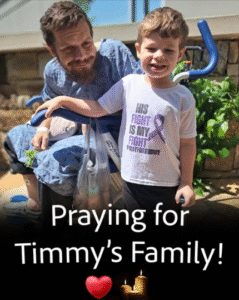Final Arrangements for Timmy
Timmy didn’t like goodbyes. He preferred see-you-soons, even when he knew they weren’t coming. He had a way of making endings feel like intermissions—pauses in a story that would pick up again, somewhere, somehow. So when it came time to make his final arrangements, we didn’t start with silence. We started with sound.
The first thing we chose was the music. Not hymns. Not dirges. Timmy’s soundtrack was stitched from the fabric of his days—crackling vinyl, late-night jazz, the hum of old engines, and the laughter of friends who stayed too long and never apologized for it. We made a playlist that felt like him: a little messy, a little moody, and absolutely unforgettable. It will play softly in the background as people gather—not to mourn, but to remember.
Next came the setting. Timmy didn’t belong in a chapel. He belonged under open sky, where the light could touch his face and the wind could carry his name. We chose a garden—wild, fragrant, imperfect. The kind of place where flowers grow sideways and bees don’t ask permission. We’ll scatter petals instead of ashes. We’ll plant something that blooms in his name. Maybe a marigold. Maybe a flame lily. Something stubborn and beautiful.
His clothes were simple, but deliberate. Timmy believed in texture, in story, in wearing things that had lived. For his final outfit, we chose the jacket he wore when he met the love of his life. It still smells like cedar and rain. We tucked a note into the pocket—just a few lines he scribbled once on a napkin: “I’m not done yet.” We left it there, because maybe he isn’t.
The guest list was short. Not because Timmy didn’t know many people—but because he only kept the ones who mattered. No one came out of obligation. Everyone came out of love. There’s a seat saved for the mechanic who fixed his car without charging him. For the florist who gave him the last bloom of the day, even when he couldn’t pay. For the neighbor who never asked questions, just showed up with soup. These are the people who knew Timmy not by title, but by truth.
We printed photos, but not the polished kind. We chose the blurry ones, the candid ones, the ones where he’s mid-laugh or mid-thought. Each image is a chapter. Each frame, a confession. We hung them on twine between trees, so they flutter like flags in the wind. A gallery of moments that refuse to be forgotten.
There’s no program. No schedule. Just a table with pens and paper, where people can write what Timmy meant to them. A memory. A joke. A secret. We’ll collect them all and bind them into a book—not for display, but for safekeeping. Something to open on quiet nights when the absence feels loud.
His car, the one he named “Bluebell,” will be parked nearby. Not polished. Not posed. Just present. The trunk will be filled with flowers. The dashboard will hold a photo of Timmy, grinning like he knows something you don’t. People will be invited to leave a note under the windshield wiper. Just like he used to do.
We’ll serve his favorite food—nothing fancy. Just grilled cheese, tomato soup, and black coffee. The kind of meal that says, “You’re home.” The kind of meal that doesn’t need explanation. We’ll toast with mismatched mugs and paper cups, because Timmy never cared about presentation. He cared about presence.
There will be a moment of silence, but not the kind that feels heavy. The kind that feels full. A silence that holds space for everything Timmy was: the mischief, the kindness, the stubborn hope. And then someone will read his favorite poem—not because it’s profound, but because it made him laugh. It ends with the line: “And if I go, don’t follow. Just dance.”
We’ll dance. Not well. Not in sync. But with abandon. Because Timmy believed in movement. In shaking off sorrow. In turning grief into rhythm. The garden will become a dance floor. The playlist will shift to something upbeat. And for a few minutes, we’ll forget that he’s gone. We’ll remember that he lived.
Afterward, we’ll light lanterns. Not to send him off, but to call him back. To say, “We’re still here.” To say, “You mattered.” To say, “Thank you.” Each lantern will carry a word: wild, kind, brave, ridiculous, true. Words that stitched Timmy together. Words that now belong to us.
And when the night ends, there will be no closing remarks. No final bow. Just a quiet walk home, with pockets full of petals and hearts full of ache. Because Timmy didn’t believe in endings. He believed in echoes.
So these are the final arrangements. Not a ceremony. Not a farewell. But a love letter written in gestures. A story told in scent and sound and sky. A reminder that some people don’t leave—they linger.
Timmy lingers.
In the garden. In the playlist. In the jacket. In the car. In the soup. In the silence. In the dance. In the lanterns. In us.



